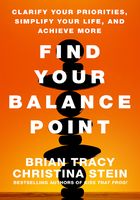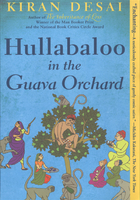Blazing light and warmth, undifferentiated and experiencing themselves. There! I've done it! The best I can, that is. Memory. A memory before memory? But there was no time, not even implied. So how could it be before or after, seeing that it was unlike anything else, separate, distinct, a one-off. No words, no time, not even I, ego, since as I tried to say, the warmth and blazing light was experiencing itself, if you see what I mean. Of course you do! It was a quality of, a kind of naked being without time or sight (despite the blazing light) and nothing preceded it and nothing came after. It is detached from succession, which means, I suppose, it may have happened at any point in my time – or out of it!
Where, then? I remember incontinence. My nurse and my mother – how young she must have been! – cried out with laughter which was also a reprimand. Could I speak before I could speak? How did I know there was the word 'reprimand'? Well, there is a whole bundle of knowledge we bring with us instantly; knowledge of what anger is, pain is, pleasure is, love. Either before or very closely after that incontinence there is a view of my legs and tummy in the warm sun. I am examining the modest slit between my legs experimentally with no knowledge of what it leads to, what it is for, nor that it defines me for the rest of my life. It is one of the reasons why I am here rather than in some other place. But I was unaware of Aetolia and Achaia and all the rest. There was more laughter, perhaps slightly furtive, and a reprimand. I am picked up and spanked very gently, no pain, only a sense of having done wrong.
Almost as far back is the time when I didn't have many words for myself and couldn't explain myself. Leptides, our neighbour's son, was kneeling by the great wall of our house and playing a game. He had a smouldering reed in one hand and a hollow reed in the other. He blew through the hollow reed and made a flame start off the end of the other. He looked just like one of our older house slaves who worked with copper and tin or silver and sometimes, but not often, with gold. I thought he might be making a tin ornament for me, which tells me that I started life as a hopeful child on the whole until I got to know about things. I squatted down to look. But he was burning up ants and doing it very neatly. He hit each one as a huntsman might and the ants were seldom scorched but completely burned up in an instant. I would have liked to have a go but knew that handling the two reeds at once would be beyond me. Besides, I had been taught not to play with fire! What interests me now is that I did not think of the ants as living things. My mind could go down as far as fish but no farther. Which is why the fish must come next.
We had a huge stone fish tank, so huge it had three grown-up steps to climb before you could see the fish in it. The time I'm thinking of must have been summer, for the water was low although the men kept bringing tubs of seawater up from the beach, but in my memory they never quite succeeded and the water stayed low until it got thoroughly rained on. Most of all I liked the time when the men brought fish up from our boats in barrels and sloshed them straight into the tank. How frisky the fish were then! They were frightened, I suppose, but they gave an appearance of joy and excitement. But they would soon calm down and seem contented and if not wanted immediately, stayed there, becoming kind of house fish and tame. They were easy to manage, like house slaves. I wonder was that the first time I compared one thing with another? This particular time Zoileus came to fetch them. He was a house slave, too, naturally. I am getting into a muddle. They were born slaves in our house, not caught in battle or raiding or punished for a crime or that sort of thing – say, being very poor for example. You know how it is. I was going to make another comparison and say it's like being born a girl, a woman, but that isn't so. There's a time in childhood when girls don't know how happy they are because they don't know they're girls if you see what I mean, though they find out later and most of them or some of them at any rate panic the way fish do in the pan. At least the lucky ones do. Anyway Zoileus simply dumped these fish in the oil which was smoking. One of the fish got its head over the edge of the pan and gaped its mouth at me.
I screamed. I went on screaming because it hurt so. I must have screamed things, not just screamed, for the next I remember is Zoileus shouting.
'All right! All right! I'll take them back –'
He stopped speaking then, for our house dame came quickly into the kitchen, the keys clanking at her waist.
'What on earth is the matter?'
But Zoileus had gone and the fish with him. My nurse explained that I had been frightened of the fish and maybe something should be offered up for luck, a root of garlic perhaps. Our house dame spoke kindly to me. Fish were made to be eaten and didn't feel things the way we free people did. She commanded Zoileus to bring back the pan and the fish. He explained that they were back in the tank.
'What do you mean, Zoileus, back in the tank?'
'They jumped out of the pan, lady, and swam off among the others.'
I have never known the truth of that. Fish fried in smoking oil can't swim away, there's no doubt of that. But Zoileus was not a liar. Perhaps he was, just this once. Perhaps he threw them away or hid them. Why? Well, supposing they did indeed swim away, it doesn't follow that I had anything to do with it. Still, people thought that was odd. The house slaves, good souls though ours were, will believe anything and the more unlikely the better. We did all go solemnly to the tank but one fish is very like another and there was a whole shoal of them stacked in the shadow under the thatched half-roof. The house dame called my mother who called my father and by that time, whether his story was true or not, Zoileus had to stick to it. In the end, I think, he came to believe it himself, believed that some power had healed some half-burnt fish for no particular reason at all, which as far as my nurse was concerned was satisfyingly godlike. A bit of – not awe – but respect came my way too. In the end a sacrifice was made to the sea god, though in the case of a miraculous healing, Aesculapius or Hermes would surely have been more entitled. Had I been older at the time I might have thought it odd in view of my gender that they did not propitiate a goddess rather than a god. But which one? Neither Artemis nor Demeter nor Aphrodite would have had much use for me.
But I suppose I had better tell you something about us. We are Aetolians, naturally, since we live on the north side of the gulf. We were a Phocian family. My father is – was – a rich man and my oldest brother has inherited from him. Where our land touches the sea it stretches along for more than a mile. We have thousands of goats and sheep and a large old house with the usual dependencies and slaves and people. We also have a share in the sea ferry which sails across from the edge of our land to Corinth. Often the people who crossed used to think our house was the next village higher up the valley and they would make their way to it after they had landed and expect a bed, or horses, or even a carriage. But a little while before I was born my honoured father had a notice put up where the ferry brought in the people. There was a wooden hand pointing up the valley past our land and letters on a board under the hand which said
TO DELPHI
So now the travellers don't bother us so much but go on up to the next village. Beyond that village and further, the oracle and the shrine and the college of priests hangs on the side of Parnassus. The oracle is a woman who is inspired by the god to say what is going to happen and so on. You'll know all about that whoever you are and wherever you live, all the world knows! A strong man can walk from our ferry up to Delphi in about half a day. I knew about the oracle when I was quite small, because we Phocians were responsible for guarding it. My grandfather Anticrates son of Anticrates took part in the appropriation. My honoured father (also called Anticrates) said that it was absolutely necessary. His father had told him when he was a small boy that it was necessary to take it under our protection. Delphi was inconceivably rich and it was quite obvious at the time that several cities (I name no names even now) were about to get their hands on all the treasure and waste it in impious ways. But, as he said, it was necessary to protect the place for we had a just war on our hands and the god agreed that we needed the gold for that purpose.
Living so near, being of such a degree and having taken part in it all, the family has many stories of what happened at the time. We used to keep some of our knowledge to ourselves but so many things have passed away I can tell you some of them now in my old age since they no longer matter. When we agreed with the Delphians and particularly with the college of priests to take them over we asked the Pythia – she was the oracle, of course you will remember that – we asked her to transmit to us the god's approval. But all she would do was cry 'Fire, fire, fire!' She came up the steps from the holy of holies into the portico and still cried 'Fire, fire, fire!' She ran wild and no one could do anything for her, the god had her in his hands, no one could touch her until at last she got among some ignorant soldiers – they were not Phocians but mercenaries – and they killed her!
It is quite true, said my father, that the oracle has never been the same since. He also said that there were a few fires in Delphi started by the mercenaries which was sufficient at the time to make her outcry quite understandable. But you can never really tell with an oracle. There are famous ones from earlier days. Once a man was told he would die by the fall of a house. So he stayed out of doors until one day an eagle dropped a tortoise on his bald head. The god speaks with a double tongue which he inherited from a huge snake he killed at Delphi. As a matter of fact – I have never told anyone of this – I myself have worked out what was meant by the other fork of the tongue when the Pythia cried out 'Fire, fire, fire!' For that year in which we took over Delphi was also the year in which the God Alexander the Great was born. You see, as all the world knows, you can never tell with an oracle. But to say we sacked the place is a monstrous lie. The war was very expensive and lasted a long time and if in the end the god was not wholly on our side it does not need a theologian to explain to us that such is his privilege.
However, don't run away with the idea that I am a wise woman and have worked out everything. I am a muddled person. Boys of our degree have been taught to think, or think they have been taught to think, though all it generally means is being able to catch you out and then shout 'Zany! Zany!' But I am indeed muddled and have not made sense of anything. I think I am muddled partly because I am a woman, partly because I was never taught to think and partly because I am me. Why! These tablets I have written are full of words and I haven't even told you my name! It is Arieka and it is said to mean 'little barbarian'. When I was young I would have liked to be called by a more resounding name, Demetria, say, or Cassandra, or Euphrosyne. But I am stuck with Arieka and there it is. Perhaps I looked like a little barbarian when I was born. Babies are so ugly.
After the fish my memories are successive so I don't have any excuse for being muddled. But after the fish things altered a little. My mother (not my nurse) took me aside and explained that I had drawn attention to myself. It felt a bit like when I was incontinent. The very words 'drawn attention to yourself' were a reprimand. I understood a little more of what a girl was.
Still, there was my dear brother Demetrios – on whom be blessings and good luck wherever he may be! He was my dearest possession. He taught me my letters. He was a few years older than I and had hair coming on his face. I still can't think why he did it and I dread the only explanation I can think of, which is that he was bored, but he drew shapes in the dust (imagine more sun!) and made me understand that each shape was uttering something. Then he put together two of those he had taught me and asked me what word they were saying and I was launched. It seems to me, remembering back, that I jumped from that first word clear over the hedges that some children find so hard and I read fluently from that moment. Of course this is impossible for two reasons. The first is that my brother only taught me a few letters on that first occasion and had to be pleaded with to 'play that game again!' The second reason is that I had no access to anything which would allow of fluent reading. There were very few books when I was a child. Of course there are more now, when people – and not the best people – have made a trade out of selling them. When I was a child, unless you had the luck to know a poet or writer well enough to beg his roll of paper off him, you had to put up with the tales people told at the hearth, the songs they sang, and if you were old enough to be present a story chanted to the whole assembled family by some wandering 'Son of Homer'.
Though the centre of the world is just a walk away up the hill from us, my brother was the only one who had a book. It was his schoolbook and told the story of Odysseus in only a very few columns. He shared a schoolmaster with our neighbour's son, but when he was sixteen – my brother I mean – he went off to Sicily to look after things there like sending corn in ships and so on and trading. As he left, laughing and shouting, he tossed the book to me and said, 'Read that to me when I come back!' The sorrows of childhood are complete and for many days I did not bother to examine the book, but at last I did and perhaps my sorrow was not as complete as I had thought, for when Demetrios came back after six months I could indeed read the book. But Demetrios was very manly, almost unrecognizable, and he had forgotten me, let alone his book. Then, after ten days or so, he went away again. Still, I could read and knew the book by heart. The result was that when a 'Son of Homer' was invited into the women's part of the house and gave us a section of the Odyssey – as I remember, the very famous bit when he's in Phaeacia – the man said (bowing to my mother) that now he had seen our house he understood that Odysseus did not immediately speak out, because he was awed at the magnificence of the palace of Alcinous. After the man had finished, I was exalted and cried out that he should go on to tell us how Odysseus had met Athene on the beach: but that exaltation led to me being told that I had drawn attention to myself again. I remember how envious I was of the boy who carried the man's lyre and had seen so much of the world. I had a daydream of disguising myself as a boy and going off with the man, though I never found a satisfactory way of getting rid of his boy, who was always there at the back of my daydream to bring me down to earth and back to my senses.
I learnt about love and grief when my brother Demetrios went away for the second time. I don't know whether I was a scrawny little girl before he went away but I am very sure I was soon afterwards. My face has always been uneven, the one side not properly balanced by the other. Generally people say that girls of my kind are redeemed by animation or a pair of beautiful eyes, but I wasn't. Leptides, the son and heir of the smaller estate which marched with ours, was just as scrawny, but seeing that he was a boy it didn't matter. He had light sandy hair and light brown freckles all over his pink face. He called himself a 'light-haired Achaian' as in the war story. He and his two sisters were allowed to play with me but that all came to a sudden end. Leptides used to make up games in which I and his sisters were his army and sometimes his wives or his slaves. His army was Alexander's, of course, and far more strictly disciplined than the Macedonians ever were as far as I've heard.
My nurse was supposed to be supervising these games, but she was getting fat and foolish and slept most of her life away, a natural slave and only worth punishing for the look of the thing. One day when I was his slave, he said that since I was no longer a free woman I should be beaten on my bare bottom. Of course in real life, and particularly in a great house like ours, the house slaves are never beaten. They are more or less adopted into the family, at least the girls are. It hurt a great deal though I didn't mind it as much as you might think. Looking back I believe Leptides was jealous of our house and estate. That makes sense, but of course it's the kind of insight you only get when you are much older; or perhaps you know it when you are young but don't know it – there you go, Arieka, getting things muddled again! But you can see how ignorant or innocent a child I was in that I asked my nurse whether a house slave could really be beaten on her bare bottom or whether she would be allowed to draw her himation tightly over her bottom. I was not prepared for the following questions nor the commotion my answers started. Nurse had palpitations and hot flushes and breathlessness. How she summoned up courage enough to tell my mother what was going on I cannot think. Not only was I forbidden to play with Leptides any more but I had some more bread and water and hemming to teach me something or other.
When I came out again I had to stand in front of my honoured father with my hands properly clasped in front and my eyes looking at the floor midway between us. My mother started to speak but my father silenced her with a gesture.
'In this kind of situation, Demetria, it is almost always the girl's fault.'
There was a long silence after that. My father broke it at last.
'I suppose you know, young lady, that you've got young Leptides into trouble? He's been sent off to do three months' military training. I don't wish to see you any more. Now go.'
So I curtsied and went to my place. Of course, whatever my father said, the military training was not really a punishment like bread and water, solitude and plain hemming. My mother said it would get all the nasty thoughts out of his head and he might even form a lasting friendship with one of our brave soldiers. Of course the men of our degree are cavalry. Indeed, boys who get sent early to military training think it's a holiday and come back boasting of being on watch in the middle of the night 'like the other men'. I was very lonely at this time and became acutely aware of my own insignificance. In addition to being scrawny with a lopsided face I am on the sallow side. My nurse told me that my father would have to pay an extra large dowry to get me off his hands, which is why he was so stern with me. She said it was enough to make any man stern because what did he get out of it? The proper dowry for a girl of my degree – provincial aristocrat – would be a thousand silver pieces. He would have to pay more like two thousand.
There were times, as I moved towards my courses, when I still had hopes that the gods and in particular Aphrodite would work their customary miracle and turn a child with my natural disadvantages into a flower-like creature and do it more or less in a single night. There is a dread insult in our part of the world, and I sometimes thought I saw it behind the faces of the people responsible for me – the thought that I should have been disposed of at birth, though of course no one ever uttered the words and I dare not myself. But the thought was there, behind their faces.
I was brooding on all this one day and going towards the fish tank when one of our boughten slaves came whining out of their place with a child in her arms and thrust it at me. She was howling by the time she reached me. My arms came up automatically to cradle, but almost as quickly I used them to push the child back at her for it was covered with spots. She, curious creature, fell silent at that, ducked a lame reverence and walked back again into her own place. But I had felt something in the instant between holding and letting go. I should be hard put to describe it further. So my simplest recourse is to tell you baldly that the girl believed I had some power and that once I had touched the child it would get better, which it did. This goes back to the half-cooked fish, a story which was now a bit of family history and, like most family history, simplified and exaggerated. I do not think I am a healer and I am the one to know, surely!
We are wrapped in mysteries. I know that. I have come to know that. Until I had my courses time did really stand still for me. I know that too. Yet among us Hellenes, whether we are Aetolians or Achaians or no matter what, courses come later according to our degree. I was in my fifteenth year. Things made a kind of unruly sense. This time it wasn't fish or even a baby, but a donkey. I have told nobody, ever. This donkey turned the mill for the coarse grain. Naturally, meal for the family was done at a rotary quern with the slave women singing the turning song, usually the one about Pittacus, but quite often if another name would fit the turning they used it. This donkey, which naturally again we all called Pittacus, walked round and round and at the end of a bar a huge ball of stone rolled round in a groove full of grain, or sometimes the mush from the olive's third pressing. Well of course you know how that kind of mill works! I was watching Pittacus and interested in his thing which he had under his belly which was sticking out and hurting him because he was braying so loudly as he walked round. This thing was as if alive on its own and quite separate from poor Pittacus it seemed. Every now and then it would snap up against his belly with a sound like hitting a big drum. It was then that a weirdness overcame me so that I felt I might fall down. But I pushed through that because I was interested and horrified and frightened. At the moment when I emerged – if emerged is the right word – one of our boughten slaves came with a gag and I was fascinated by the struggle. He had to strap the animal's jaws together to keep its mind on the work in hand. Pittacus was trying to rear, but could do nothing but strike out sideways with a hind leg. I found out afterwards that he had scented one of our most valued mares which was to mate with my father's war stallion, so Pittacus couldn't be let go even when the mush was all pulped.
There is something very strange about girls immediately before menstruation. I don't mean the pretty ones, the beauties or even those who are comely enough to be welcomed into a family with only a modest dowry. I mean really the unattractive ones, whom a god has blighted and who have nothing for sale and who have become so defensive they can never make contact with anyone, least of all with the rites of the Paphian. They acquire, these unfortunates, strange abilities. Or perhaps abilities is the wrong word. The situation is not really describable, except that the girl becomes very clever in a useless way – useless it may be to anyone else, though the girl may think there is substance in it. Well. It may be indescribable but I will do my best. It is a furtive power. They wish: and if they wish in the right way – wrong way? – sometimes, if the balance is ever so slightly on their side, then – just more often than not but only just – they get what they want or somebody does. The world is riddled with coincidences and the girl sees this. She uses this when it is available. Perhaps to somebody else who gets what he wants. Or, I mean, gets what he didn't want. You can never prove this. As I said it is furtive and dishonest, knows how to hide, how to claim, how to disguise, avoid, speak double like the snake or not at all. Moreover, this is not a power to be exaggerated. It is no oracle, does not win battles. It cannot cure the plague but only some headaches, cannot cure heartache but can supply the necessary tears for it.
When my father clapped me up on bread and water the first time, he took my doll away. I wished it back but, of course, how could it come? But when they let me out I knew where they had put it and went straight there. I knew indeed where it was, went and took it because they were such and such and would put it there. So I watched the donkey Pittacus struggling against the spikes in his gag and the weirdness overcame me and I quietened him, feeling the consolation and love go out, out through my aching head and suddenly reeling mind, out to poor Pittacus, and quietened him in his struggle so that his tail dropped and his member drew back in and he stood silent at the mill with his head down by his feet. It was at that moment that I heard a shout of laughter and there was Leptides grinning over the wall of the yard and showing his teeth through a sandy beard and crying aloud to the whole world: 'He fancies you!' Into that blazing moment, drawn and irritated by the ass's clamour, strode my father. He stopped ten yards away. He went white, turned and fairly ran into the house. My head cleared as if he had run out of it. There was a great silence of change and discovery. I heard a faint but positive tap and, by some instinct looking down, I saw the first drop of my blood starred on the strap of my right sandal.
After that of course I disappeared into the women's quarters and the usual sacrifices were made. I went into a five-day period of seclusion. The ass in rut and Leptides' loud, male laughter and his shouting out what ought not be said – they were a kind of initiation into my new state.
I must have been happy some of the time. I think girls are created to be happy for a time in childhood. They can be happier in their skins than men, or boys rather, who have always to be doing something, mischief probably. But now of course, aged fifteen, I was grown up. It was difficult. Sometimes I think, and indeed thought at this early experience of being grown up, that we should be free and natural as birds are. What should we think of a bird which was different and feverish, that never flew but sat all the time on a nest? But my parents expected such normality. It should have been easy enough, for all I had to worry about were my courses and all the rituals attached, but the rituals didn't bother me and my courses hardly hurt me – merely added to the confusion in my head and a slight headache for a day and a half. They were just enough to remind me that women aren't free, not even the free ones. It was like a not very heavy chain which had been waiting to fasten itself round my waist to ensure that I was a prisoner like all women. The only consolation was that for a few days each month I was untouchable. What followed was that on those days I could have any thoughts I wanted without the gods taking any notice of them, because the thoughts were untouchable, too. I have never told anyone this truth because it is a mystery and only to be written down rather than spoken. So on those days when I was thought to be unclean I found myself thinking all kinds of forbidden thoughts and planning to put them away somewhere safe. I do it now for I am in my eighties and what does anything I do matter?
As I was grown up, when my father had guests who were suitable – and I don't think my father ever had guests who weren't – I was sometimes allowed to sit on a high chair by my mother in hers. Of course neither my mother nor I said anything on these occasions and if a guest was so forgetful of his manners as to address either of us directly my father would answer for us as was proper. So, though I saw Ionides very soon after I grew up, I never spoke to him. He was rangy and restless and gaunt. Though he was not much more than thirty years old there was grey in his hair and a grey tone round his mouth and chin where he had shaved in the Alexandrian manner. He smiled sometimes out of his gaunt face and you could see how the muscles moved under the skin. It was a strange smile. There was a grief in its appearance which I am sure enough he did not really feel. It was there, you might say, partly by accident and partly by his position which was distinguished. He was, in fact, the priest who had to interpret the mouthings of the Pythia when she was beside herself on account of inspiration. The second visit he made, there came a moment when he actually smiled at me, which in a younger and less distinguished man would have been suggestive. But it was a kind, sad smile and it moved me much as my brother had done. I dared to smile downward slightly and drew my scarf closer. I was conscious of wearing my best dress, the one with the egg and dart border. I am sure there was some kind of communication he intended, after an appraisal taken. It was like the first glint of the sun. The very next day my father sent for me. This was not to the large hall where we entertained our guests but to a smaller room, the estate office in fact, where there was the only paper in the house and large bundles of tally sticks. My father was flicking the balls of his abacus. As I came in, he threw the tablets at an estate slave who waited before him.
'Add them up for yourself!'
When the slave had gone my father turned to me.
'You may sit down there.'
I got up on the three-legged stool which was slightly too high for me and waited. He opened a box and took out a document which I could see was written on all over and beautifully written at that. He unrolled it and muttered the contents to himself.
'So and so the son of so and so, blah blah, has given for partnership of marriage, blah, her mother being blah to blah son of blah. Bride brings so much –'
'But, Honoured Father –'
'Don't interrupt. This is a great day for you, young lady. Where was I? "Son of blah, bride brings – let husband and wife live together – duties of marriage – if separation – let the husband restore – father of the husband Leptides – contract valid written in duplicate – each party – "'
'Father!'
'Don't interrupt – "and in answer to the formal question – "'
'I won't! I won't marry him! Who does he think he is?'
'Leptides son of Leptides. You must have known.'
I found I had climbed down from the stool. I was twisting my hands one with the other. I suppose it's what they call wringing.
'What does he want?'
My father snorted.
'He wants to finish the job if I remember rightly.'
'Never! Never!'
'Now listen, my girl –'
And still wringing my hands I did listen, and heard all the arguments which might be expected. My parents knew best. Leptides was a fine young man – well, not too bad a young man – I would thank them when I showed them their grandchild. Considering the dowry I had to bring him I ought to be down on my knees begging for forgiveness from my parents who had done more than their best for me. Who did I think I was? The Queen of Egypt? Get up, child, it's not as bad as all that. Women must be married or where should we be? It's ordained by the gods and who was I and so on ...
Who was I indeed? I was already down on my knees but it was not in supplication. It was in panic and anguish through which I actually heard the threat of more bread and water and was ordered angrily to go back to my room and think about it. I did that, scurrying away like a mouse in a rickyard – not even a rat. When I got back to my room I walked up and down, up and down, arms crossed on my bosom, hands beating the upper arm, what they call with women beating your breast though not even the deepest grief or terror would make a woman do that, up and down, up and down. I went mad, I think. Crouched on my pallet bed I saw there was only one thing for it. I must escape somehow. I must get away – but where? I thought of my brother and determined that I must go in his direction – towards Sicily – something would happen, the gods would protect me.
Now, at my age, I know a strange thing. I was going through the motions of escape. What I was doing was making a last utterly desperate appeal to my parents: see! I am even willing to face death to escape this fate! But at the same time the underside of my mind knew it was an appeal. The only honest determination of my mind was this: I will go towards Sicily and I will go as far as I can.
I will not elaborate on the contrivances I made. It involved getting the boughten slave who thought she owed her son's life to me to get me a boy's tunic. The necessary companion of this foolish escapade – foolish if I did not admit it was an appeal, but sensible otherwise – was, of all creatures, Pittacus. The only people who saw us leave by way of the back court were slaves who were at once astonished and frightened. I was astride the ass in my tunic with a scarf draped over my legs and Pittacus did not much like my weight where it was, as a change from the mill to which he was so accustomed as to think it the only way of living. He had also, what was very natural, a tendency to turn in a circle if I was not keeping him straight, which I could only do by whacking on the turning hand with a stick. We had got no more than a hundred yards along the track above the beach when I heard the horn from the hill. The next thing I heard was a great belling of hounds and shouts of men, which confounded Pittacus who wanted to go back home. I had got him pointed towards Sicily when the clamour increased suddenly. A full-grown stag came round the corner of the path with three hounds hanging from him and the rest of the pack boiling round him and the men on horses only a few yards behind. Even at that moment I did not understand my peril and felt for the poor stag and its terror so that it turned aside and dragged the snarling hounds down the beach towards the water. The hounds had a go at Pittacus and when he felt a real bite he bucked hugely and threw me into the air. I fell on a hound or two which broke my fall but it was still heavy enough to knock me out.
I came to, to feel my tunic tearing. Leptides and Ionides were either side of me, keeping the horses' hoofs clear of me and whipping the hounds away. The anger and contempt in their eyes – and the laughter in the faces of the riders who now crowded round – were worse than the nips I had suffered from the hounds. I find it hard to believe at this distance of time, but it was indeed Leptides who chased the stag into the water and ordered the huntsman to cut its throat while Ionides wrapped his cloak and my scarf about me and set me before him on his horse. I did notice even then how he winced at the touch of my flesh and how, when he saw what I tried so desperately to conceal from him, his face twisted in disgust. But I was ignorant, weeping and sore. I had made my appeal sure enough and now had to abide the consequences of it. I passed the next few hours in a kind of deliberate insensibility. They took me back to the house, called for my mother, said things, everybody said things. At one point Leptides was whipping off our boughten slaves, the house slaves had too much sense to interfere. At last I was in my own room, wearing a dress just like a grown woman, my nips smarting where they had laid salve on them, my mother standing by the window and closing the shutters as if there had been a dead body in the room. I wished at the time that there had been. When they were closed and the room in an artificial twilight she still stood looking down at me.
'You fool.'
After that, there was a long pause. She began to walk up and down, then stopped again.
'What are we to do with you?'
Still I drew myself in and hid in my own mind.
Presently my mother left me. There is not much to say about my state except that it is a retreat, further and further away from the daily world. It is not a drawing into one's self; or rather it is, I suppose, since in those circumstances where else is there to go? But what it feels like is a deliberate descent into the earth, down and down. Each time I realized afresh the enormity of my disgrace, the depth of my shame, I drew myself in and thrust myself down, down, away from the daylight, away from people. Also away from the gods. I suppose that was where my ignorant but now one-pointed mind came on a fact which would have astonished me if I had been in a condition to think round it. The fact was that I missed the gods and was not just ashamed, but stricken down with grief, and when at last I got to the level where there were no people but only gods, my heart broke. Do not think it was this god or that. They had drawn together in a sacred band. Even our herm, the cheeky column with the privates of a man and a bearded face, who stood, fronting the path from the ferry, even he seemed glad in my imagination to be turned away from me.
Oh, that child! It is a kind of self-love I suppose that makes me smile to myself when I remember her. Well. For all the ascetics say, a degree of self-love is no bad thing. It makes life possible, unless like the ascetics you think it wholly bad and to be rid of as soon as you can. But whatever you think of her, whatever I remember of her there is no doubt about the poor thing's shame and grief with her gods turning their back on her! Until then I had accepted them as being there because everyone else – grown-ups I would say – believed in them or said they did. I was too young and ignorant to know that people do not always believe what they say they do. Anyway, in that small room, with its pallet, its single chest, its hooks with one or two cloaks hanging from them, there in the artificial twilight she dropped down into grief, into sorrow beyond the shame. She dissolved away like a lump of salt in fresh water. There was nothing but grief before the retreating backs of the gods: then they were gone.
There is a void when the gods have been there, then turned their backs and gone. Before this void as before an altar there is nothing but grief contemplating the void. Time passes but irrelevantly. The void with the grief before it is eternal. Even the sound of the wooden bolt being shot back and the latch lifting did not alter that contemplation. My mother's voice was more deeply bitter than I had ever heard before.
'He has withdrawn his offer. Leptides, that oaf, has withdrawn his offer. He' – and it sounded as if she spat the words out – 'He pities us!'
Life is not bad. It is intolerable, which is different. I sat up heavily. I stared at my mother's feet.
'He doesn't want the thousand pieces of silver?'
'What decent man would when a woman went with it who has shown everything she's got to half Aetolia? But a boy, heir to no more than a farm, to turn down alliance with us – with us!'
I heard the door close again and the latch drop. I listened for the wooden bolt to move but it never did. Well. What bolt is needed to cage a naked girl?
Presently I sat up, then stood up. I felt my nips and they had hardly broken the skin. The hounds were well enough trained – no Molossian dogs those! They had known their place and the difference between human skin and a stag's leather. I took my phial of olive oil and rubbed a little of it into my face. I thought to myself that if Leptides had gone through with his offer I might have asked him for a mirror – and flinched at once from the bloodless image of his voice: What would you want with a mirror? I combed my hair out but unravelled the knots with my fingers. I had neither so much hair nor so many combs that I could afford to lose any of them. I eyed my open chest with its folded clothes. The best one lay on top. I moved it on to my pallet and took out a dark gown that had frayed round the hem at the heel. I put it on slowly then fastened it with bronze brooches on either shoulder. I girdled myself and crossed the straps between my small, not to say insignificant breasts, then pulled up the skirt to let it hang down over the girdle.
You will wonder why I did all this, I who had been grief before the void, but the reason is simple. Nature has a world of imperatives and I needed to obey one of them. It is odd how people in stories never need to ease themselves, and that bitch Helen never menstruated – no, no, not bitch – poor soul! So I went out through the unbolted door and into the privy and eased myself, thinking now I was no longer before it that of course the void was the door of death, which explained everything and brought me a measure of peace: for I saw that death was an escape and a refuge. That is a hard lesson for the young to understand unless they have really been brought before the void by the unbearable cruelty of life itself! The others are right to dance and sing and have best friends and marry a good man and love their children. When I was back in my room I wondered what to do next, which shows that I was properly alive again and even a bit hungry. But before I had come to any conclusion my mother opened the door and came in quickly.
'Arieka! No, not that dress, your best one quickly!'
'To wear?'
'Quickly, I said! For Heaven's sake get that old thing off and put on your egg and dart! You can wear the gold earrings today and the bracelet. Hurry!'
'What is it, Mother?'
'Hurry, I said! I want you looking your best.'
'Oh, not Leptides! I won't –'
'No. Not Leptides. Forget him and hurry. Your father wants you.'
After I had changed as fast as I could – and my mother fussed round, pushing a strand of hair this way, pulling up the skirt, muttering and blessing herself – we went, she in front, of course, I following with hands folded at my waist. But they came up of themselves.
He was not alone. He lay on one couch and Ionides on the other. Ionides gave me his slight version of the smile with its accompanying sorrow. My father opened the proceedings.
'You may sit, Demetria.'
Ionides stirred.
'And the girl, old friend? The girl too, don't you think?'
My father pointed to the other chair. I got myself on to it rather clumsily if the truth were to be told. My fear seemed to swirl round me. My father cleared his throat.
'Ionides Peisistratides has with great generosity offered us a way out of our – what shall I call them?'
'Your difficulties,' murmured Ionides, 'your temporary difficulties. Or do I sound too much like a money-lender?'
'Our difficulties,' said my father. 'Precisely. He has made us an offer on your behalf. He proposes to nominate you as a ward of the Foundation.'
There was a silence. My father stared at me, then at my mother, then at Ionides, then back at me.
'Can't you say something?'
But I was not used to saying something. There was, as I think the saying goes, an ox on my tongue. It was Ionides who answered him at last.
'I think, old friend, that you had better leave this to me.'
He heaved himself up on the couch, turned a little, swung his legs and put his feet on the floor. He was sitting on the edge of the couch, just as if he had been a girl! I shall never forget that moment. I might have laughed but did not. But it was, to say the least, odd to face a man sitting opposite me. It was certainly odd, but easier.
'What has happened, Arieka, is that after all the excitement – I mean after the – well, you are called a little barbarian aren't you, so may I use a barbarian word I picked up on my travels and say that after the shemozzle this morning your parents find themselves, think themselves in a fix. Now you've decided to refuse that young man and, believe me, I agree with you, the way is open for me to propose what I was going to before I heard you were contemplating matrimony. You see, I'm really a rather important person –'
My father laughed.
'A very important person.'
'If you say so, old friend. Very well. At least an important person in that I can decide a girl is suitable for the service of the shrine at Delphi.'
'Don't get the wrong idea?' my father broke in. 'You'll sweep floors.'
'That is putting a rather dreary construction on the offer, don't you think? You see, my dear, there is a college of priests at Delphi. The Foundation, that is the divinely constituted body which actually runs the place, if you see what I mean, also has to decide what persons are worthy of belonging to the service of the god in however slight and menial a position. You have heard of the Pythia of course? Or I should say in fact the Pythias. At the moment there are two of them. Those distinguished ladies are sacred and divine and utter the oracles of the god' – my parents and Ionides himself made a sacred sign – 'but we are not directly concerned with them. After all' – and he smiled again – 'we have slaves to do what I may call "the dirty work"!'
'You must think yourself lucky, my girl?' said my father. 'Don't imagine you're not costing us anything!'
'The Foundation,' murmured Ionides, 'is not a charitable institution. It must, if I may so phrase it, pay its way. Your father, Anticrates the son of Anticrates, and I have come to an agreement on behalf of your family and the Foundation. Your dowry will be held by the Foundation. On your death – we have to mention such things, my dear, when discussing legal matters – on your death it would become Foundation property in perpetuity. Should you wish to marry at any point the Foundation would return the whole sum to you but keep the interest.'
'Ion, old friend, we should mention the sum to her don't you think?'
'I am sure a young lady like Arieka would not be interested in such sordid details. I should say, Arieka – now I really think you should uncross your arms, you know! That's better. You see, what your being a ward of the Foundation really comes to is that I have adopted you and shall be responsible for you. Do you mind that? Could you possibly bear it do you think? I should have to be responsible for your education in your duties and – oh heavens – a whole host of things. I hope we shall be friends.'
Beside me I heard my mother stir. I also heard in her voice that she had come to boiling point for she fairly hissed the words, 'Say something!'
But the words which came out of my mouth were nothing but astonishment.
'W-why me?'
My father answered the question instantly and grimly.
'Because we've paid an arm and a leg to get –'
'Old friend! I think we have all said very nearly enough. The question now is how soon can the girl pack up and come? She has a maid, I suppose? You'll send her up in a proper vehicle? We have to think of the reputation of the Foundation, you know! To answer your question, Arieka, we think, after what we have heard, that there may be qualities lying dormant – I mean asleep – in you which are – dare I say? – unusual; oh, nothing to be proud of, I assure you, but qualities in which we – well there. Everything will explain itself.'
'Where will she live?'
'Oh, we have the appropriate accommodation, old friend. It's a large foundation, you know, all those souls! And as I happen to be the Warden –'
'She can think herself lucky,' said my father shortly. 'Is there anything else?'
'We'll nominate our man for the agreement and you'll nominate yours, I suppose. But she can come before that. We have no differences do we? Everything is straight and plain.'
'We don't want the girl any more.'
'I hope you mean that as far as she is concerned the affair is settled to her satisfaction? Any other meaning –'
My mother stood up, so I did too. She spoke, 'lonides Peisistratides, I thank you.'
My father favoured me with a glare.
'Well, girl? Aren't you going to say anything?'
'Honoured Father.'
'To Ionides I mean.'
But again my words were the wrong ones and made little sense.
'This wonderful day –'
The last I saw of Ionides that time he was not smiling but laughing out loud, a thing he seldom did.
My mother fairly pushed me out.















